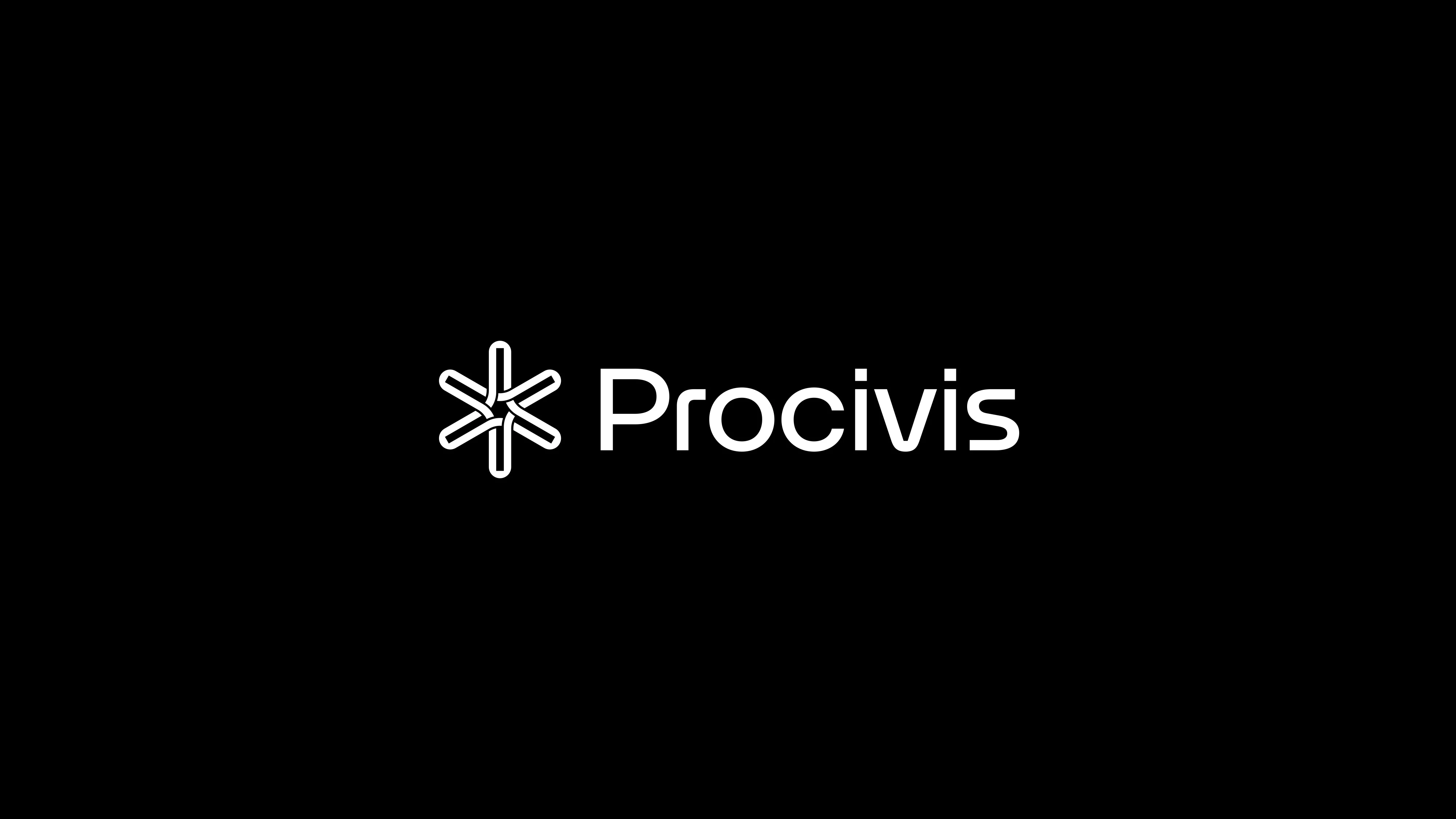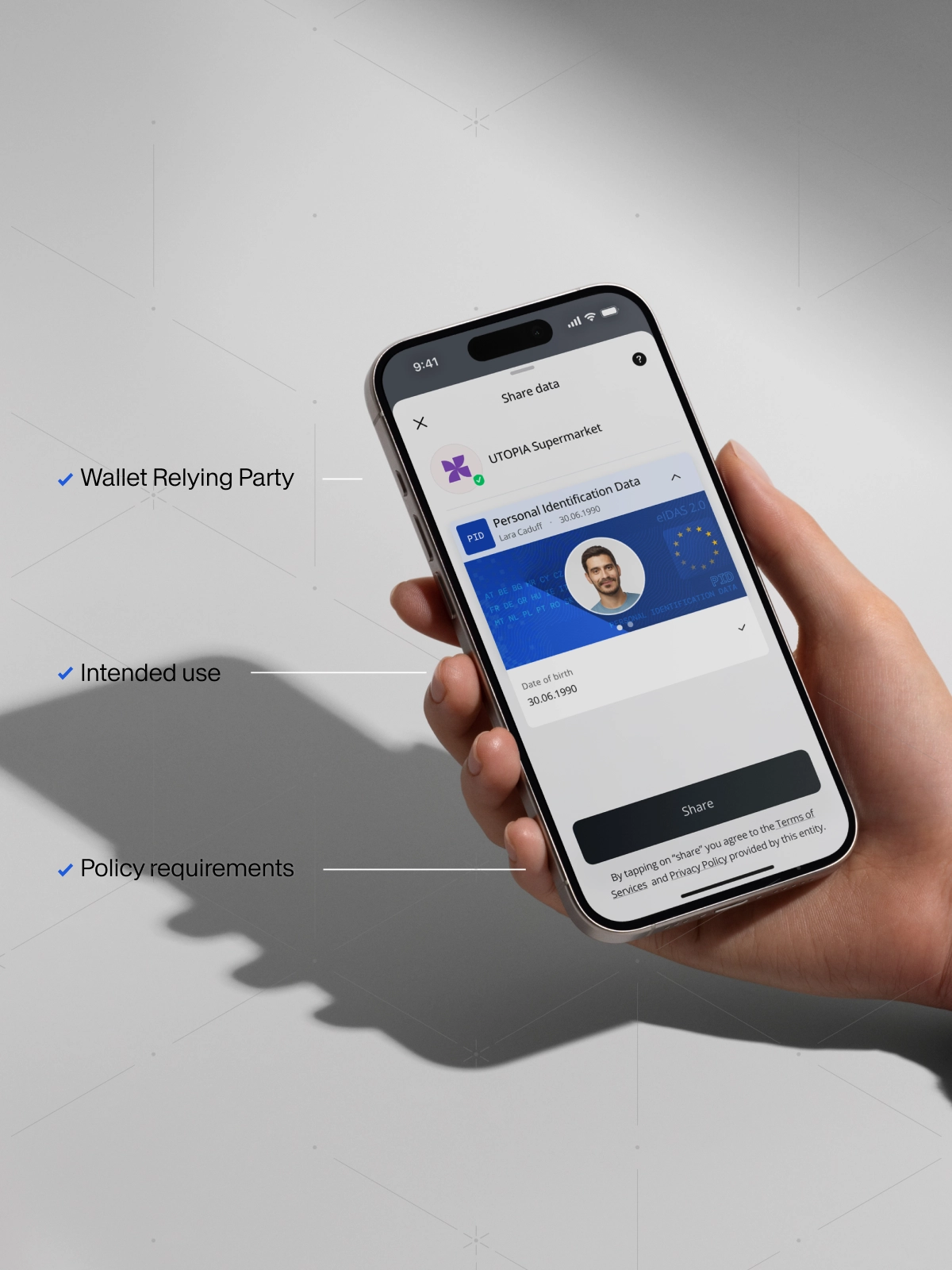The landscape of decentralized digital identity and verifiable credentials has evolved rapidly in recent years with countless new standards and architectures being proposed continuously. The self-sovereign identity (SSI) concept is a key driver of this change. With new technical standards, and recent regulatory changes like in the EU, wallet-based digital identity credentials are set to become the new norm for identity management in both public and private sectors. Our open-source release allows governments and businesses to prepare for these regulatory frameworks by offering a scalable, production-ready solution that is both secure and compliant.
Why we developed Procivis One
As a long-time innovator in the field of digital identity and credentials, Procivis has contributed to the identity innovation ecosystem since 2017. Three years ago, we went into a strategy process to review the factors that inhibit the widespread adoption of the SSI paradigm and found three key inhibitors:
- The lack of a legal framework that provides secure and trustworthy governance for the new decentralized digital wallet and verifiable credential paradigm.
- The lack of dependable standards and reliable implementations that keep stakeholders from investing into production implementations out of a fear of sunk cost.
- The lack of affordable future proof software that allows stakeholders to go into production and take the leap of faith and investi nto the new paradigm.
The Lack of a Legal Framework
While we were not able to tackle the first of these challenges by ourselves, we are grateful to note that many jurisdictions across the globe have taken on the challenge to update their regulatory system in support of the new wallet and credential paradigm. At the forefront of this development, are Switzerland and the European Union leading the way, both launching productive E-ID Wallet solutions in 2026. The regulatory adoption combined with the government driven provision of high assurance digital identity credentials is of great significance to overcome the chicken and egg question for the rollout of this technology, setting the scene for widespread adoption to occur and hence build an ecosystem in the public and private sector.
The Lack of Dependable Standards and Relieable Implementations
The second problem plays an equally important role. Till today, many technical challenges in this emerging technology have not yet been standardized or aligned internationally, leading to a varied ecosystem of implementations and software stacks that often fall behind the ambition of interoperability and mutual recognition that is motivating and justifying the digital wallet and credential paradigm. This second problem is one that we have solved at Procivis with the launch of our modular and flexible Procivis One solution in November 2023. It effectively provides a multi-stack implementation that enables implementers to develop their use cases against a stable API while there is support for all relevant flavors of standards and implementations that one currently encounters internationally. With that in hand, the justified fear of sunk cost and a need to re-develop one’s solution continuously has become void.
The Lack of Affordable Future Proof Software
With the two problems being solved, the challenge to make this technology available in an affordable and future proof way for implementers to build on was still left on the table and we are proud to announce that this has been solved as well. With our upcoming open-source release of Procivis One we are not just offering an end-to-end solution — we are laying the foundation for a more secure, scalable, and flexible future for decentralized digital identity and verifiable credentials.
Why do we need Open-Source?
Our move to open-source Procivis One comes with several major benefits for developers, and governments alike:
Developer Ecosystem and Community Growth
Opensourcing our Procivis One solution will foster a developer ecosystem around our product, allowing everyone to benefit from its unique modularized multi-stack approach. This encourages the development of integrations, and new use cases that will grow the ecosystem organically. Using our powerful REST API or mobile SDK allows developers to tap into the full potential of verifiable credentials,wallets and the issuer and verifier ecosystem that enables them.
Transparency and Trust through Code Visibility
One of the key benefits of open source is code visibility. Users, developers, and independent auditors can review the code themselves, increasing trust in our software's security, performance, and compliance. This transparency is important for governments to ensure trust of the solution for their citizens. This is also the reason why the EU made this a requirement in their EIDAS 2.0 regulation.
Security Assurance via Independent Reviews
Open-source projects benefit from crowdsourced testing and peer reviews, where independent developers and auditors can review the code for potential vulnerabilities. This ensures that Procivis One is continuously tested in a variety of environments, improving its overall security and robustness.
Reduction of Vendor Lock-In Concerns
One of the major hurdles institutions face when adopting new software is the risk of vendor lock-in. By open-sourcing Procivis One, we remove these concerns. institutions can adopt our solution with the confidence that they aren’t tied to proprietary systems, allowing for greater flexibility in how they implement decentralized identity solutions.
Accelerating Adoption and Lowering Barriers
At Procivis, our goal is to make self-sovereign identity and digital identity wallets accessible to as many organizations as possible. Open source allows them to explore the benefits of decentralized digital identity before committing to full-scale implementation.
Growing the Ecosystem with Partnerships
Opensourcing also paves the way for partnership opportunities with other technology providers and service vendors. By offering an open, flexible solution, Procivis One offers the opportunity to companies looking to build integrations or collaborate on joint projects. This opens the door to new partnerships that will drive the development of the decentralized identity ecosystem.
Meeting Legal Requirements
Theregulatory environment in the upcoming Swiss E-ID law and the eIDAS 2.0regulation in the European Union, demand for secure, decentralized identitysolutions that are [HKD2] open source. Procivis One is already in action, with successful live implementations at the Canton of Zugand the U.S. Department of Homeland Security, proving that it can meet theneeds of governments alike. Making it available as open source now is inviting everyone to benefit from these experiences and tackle their implementation goals for eIDAS 2.0 and the Swiss E-ID.
What’s Next?
We’re excited to open up Procivis One to the world. Over the past few months, we’ve conducted extensive security testing, code auditing, and trials with dozens of organizations. Now, with the open-source release anyone can start using Procivis.
If you’re ready to start exploring Procivis One, head over to our trial environment . Whether you’re a developer looking forward to build or a government agency preparing for eIDAS 2.0, or any institution seeking to upgrade your identity solution, we invite you to join us in shaping the future of decentralized identity and verifiable credentials.
Keep an eye on our channels to learn about the launch of our open source release.
Get Started Today!
Start using Procivis One to issue, hold, and verify digital identity credentials. Reach out to us for more information or support as you bring your solution to life.
.png)









